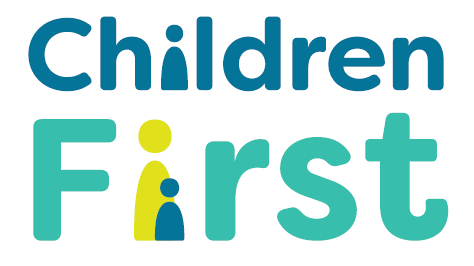
Children First refers to Children First: National Guidance for the Protection and Welfare of Children 2017 and the Children First Act 2015. It is a generic term used to encompass the guidance, the legislation and the implementation of both.
Children First: National Guidance for the Protection and Welfare of Children (2017)
Children First: National Guidance for the Protection and Welfare of Children (2017) (PDF, 3.84 MB, 72 pages) is a national policy document which assists people in identifying and reporting child abuse. It describes the four main types of abuse and sets out the steps which should be taken to ensure that the child or young person is protected from harm. Children First is for everyone; “It is intended to assist you, whether you are a member of the public, a professional, employee or volunteer in identifying and reporting child abuse and neglect, and to deal effectively with these concerns. It also sets out the statutory responsibilities for mandated persons and organisations under the Children First Act 2015 and provides information about how the statutory agencies respond to reports of concerns made about children.” (p3)
An Addendum to the Children First National Guidance (PDF, 487 KB, 3 pages) in January 2019 amended the guidance to ensure that online safety is specifically accounted for in child safeguarding statements.
Children First Act 2015
The Children First Act 2015 provides a legal basis for elements of the Children First: National Guidance for the Protection and Welfare of Children. The Act provides a number of key child protection measures which include:
- A requirement on organisations providing services to children to keep children safe and to produce a Child Safeguarding Statement;
- A requirement on defined categories of persons (mandated persons) to report child protection concerns over a defined threshold to the Child and Family Agency (Tusla);
- A requirement on mandated persons to assist the Child and Family Agency and “to give to the Agency such information and assistance as it may reasonably require” in the assessment of a child protection risk;
- The removal of the defence of reasonable chastisement from the Non-Fatal Offences against the Person Act 1997. This means that a person who administers corporal punishment to a child will no longer be able to rely on the defence of reasonable chastisement.
- Placing the Children First Interdepartmental Group on a statutory footing.